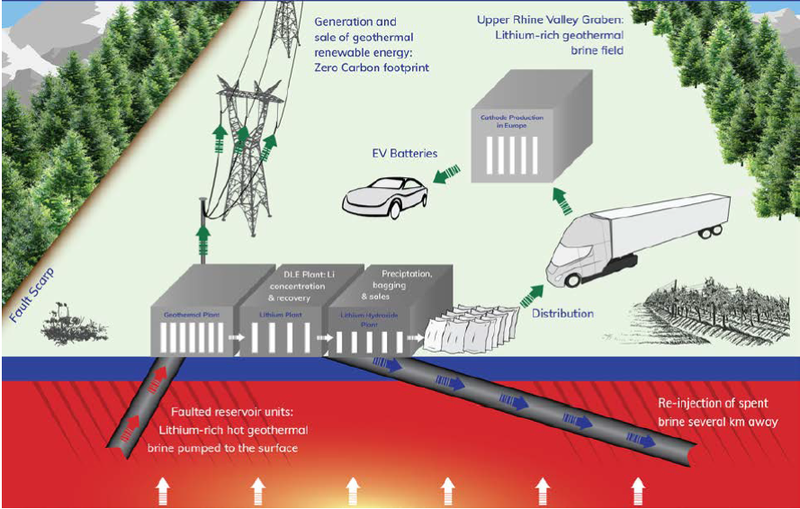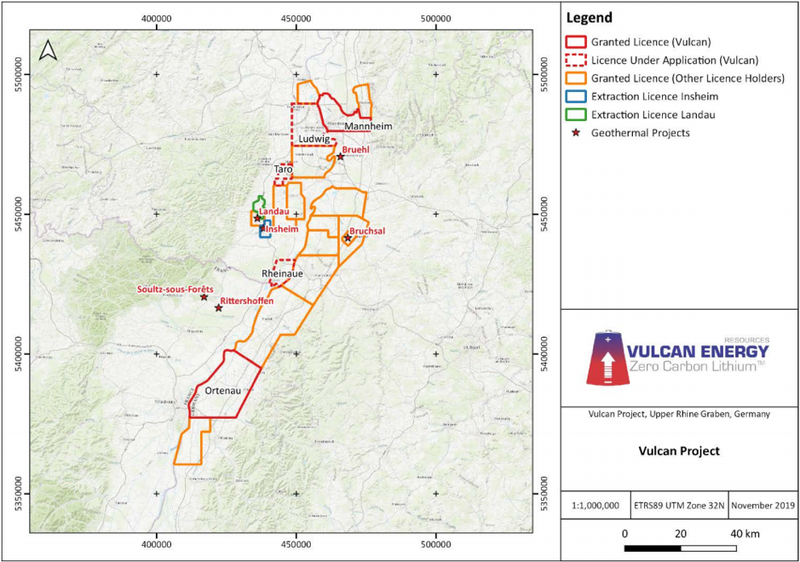
Vulcan Energy Resources Ltd has released promising results from its October 2019 regional geothermal well brine sampling and analysis campaign in the Upper Rhine Valley, Germany.
By way of background, Vulcan is aiming to establish the Vulcan Zero Carbon LithiumTM Project, the world’s first Zero Carbon LithiumTM project.
It intends to achieve this by producing battery-quality lithium hydroxide from hot, sub-surface geothermal brines pumped from wells, with a renewable energy by-product fulfilling all processing energy needs.
The Vulcan Zero Carbon LithiumTM Project is strategically located, within a region well-serviced by local industrial activity, at the heart of the European auto and lithium-ion battery manufacturing industry, just 60 kilometres from Stuttgart.
The results released today were generally above expectations, ranging from 104 mg/l lithium to a maximum recorded value of 215 mg/l lithium (average of 181 mg/L lithium) as analysed by total metal inductively coupled plasma – optical emission spectrometry analysis (ICP-OES).
The highest average lithium grade was recorded from the Insheim plant where Vulcan has an MoU (memorandum of understanding) with the owner Pfalzwerke geofuture to earn in to 80% of the lithium rights.
The lithium-brine analytical results will be used in Vulcan’s maiden mineral resource estimate for the project, which is expected to be completed imminently, a development that could well be a significant share price catalyst.
Maiden JORC resource not far away
The burgeoning European battery manufacturing industry is forecast to be the world’s second largest, with currently zero domestic supply of battery grade lithium products.
The company is concluding a scoping study of the project, and the metrics relating to the maiden JORC resource will feed into the scoping study.

Commenting on the significance of these developments, managing director Francis Weden said, “These geochemical results, which confirm the high lithium grades within the heated, high-flow rate geothermal brines of the Upper Rhine Graben, are an important step in our strategy to fast-track the development of the Vulcan project, to achieve our goal of producing a Zero Carbon LithiumTM hydroxide product in Germany.
‘’The next step will be to incorporate the results into our maiden mineral resource estimate, which we expect to update our shareholders on imminently.”
Landau and Insheim perform well
The fact that brine collected from sample sites at the hot and cold circuit sites of the Landau and Insheim geothermal plants returned similar lithium values is encouraging because the test suggests that almost no lithium is lost during the geothermal processing.
The location of these areas can be seen on the following map outlined in green and blue respectively.

